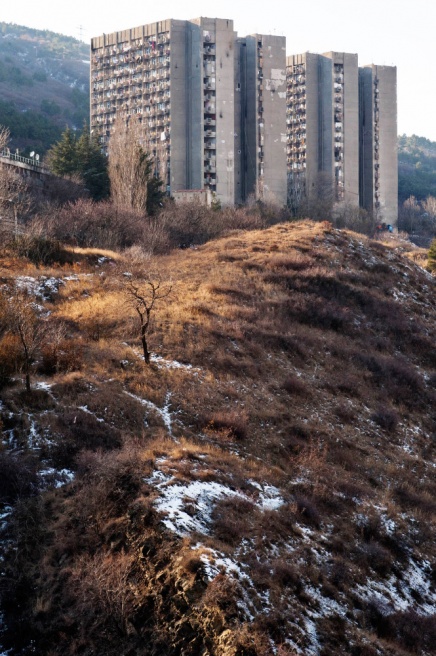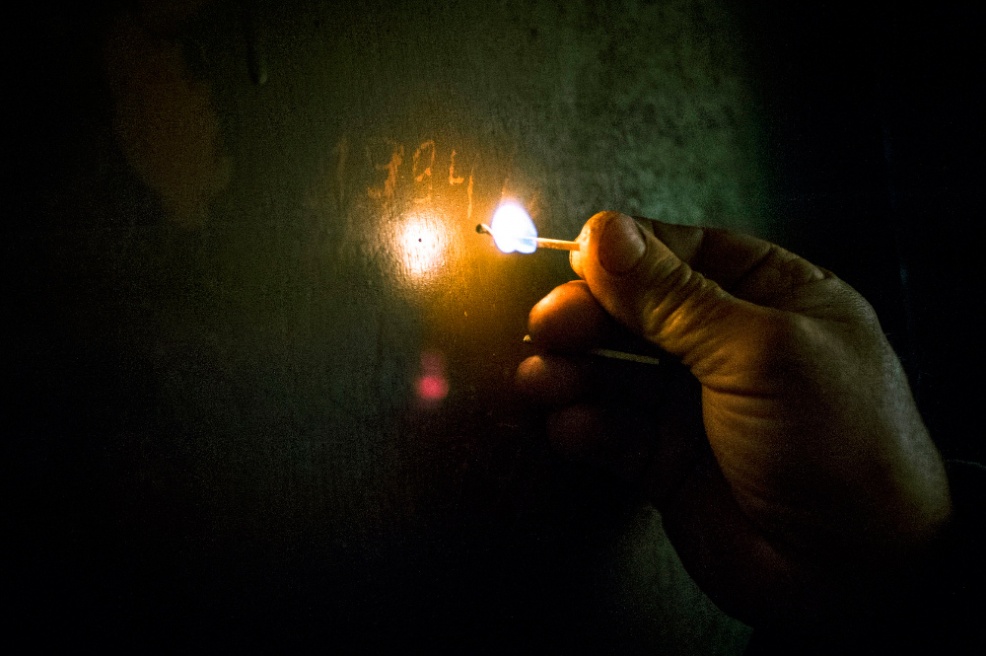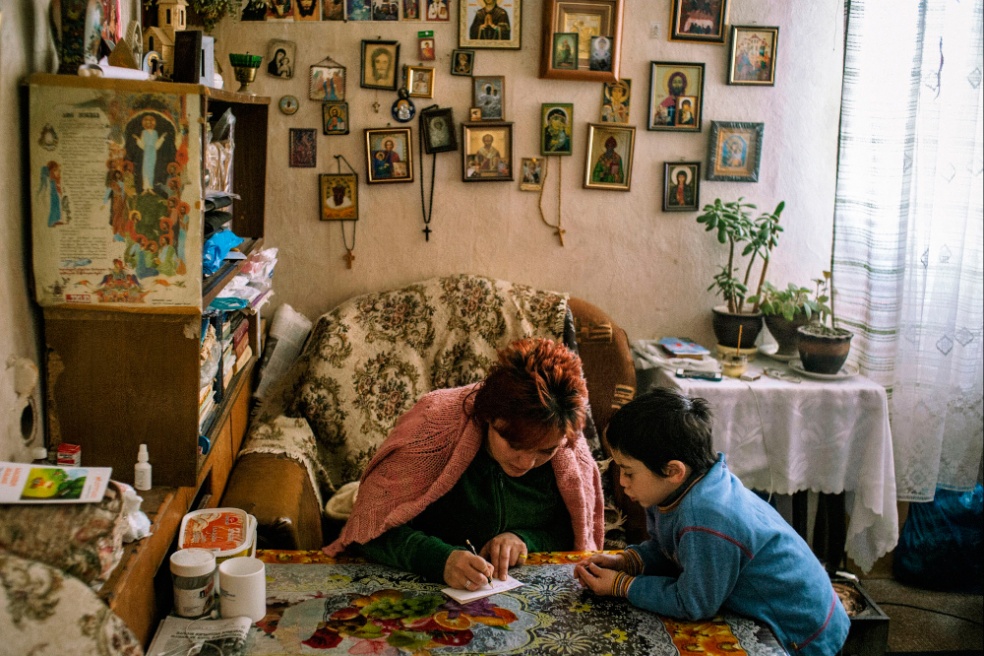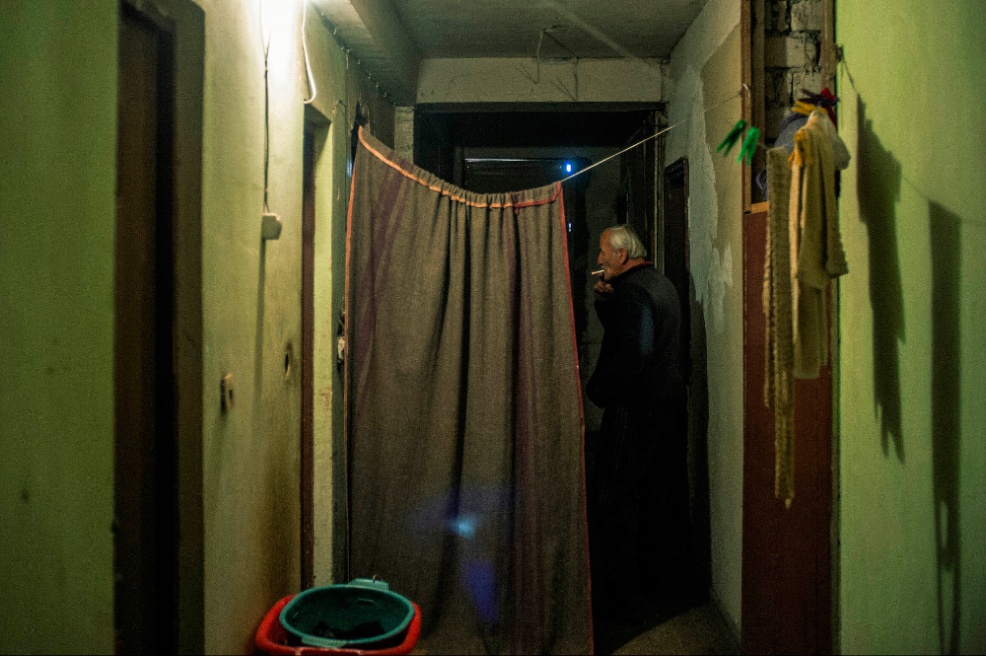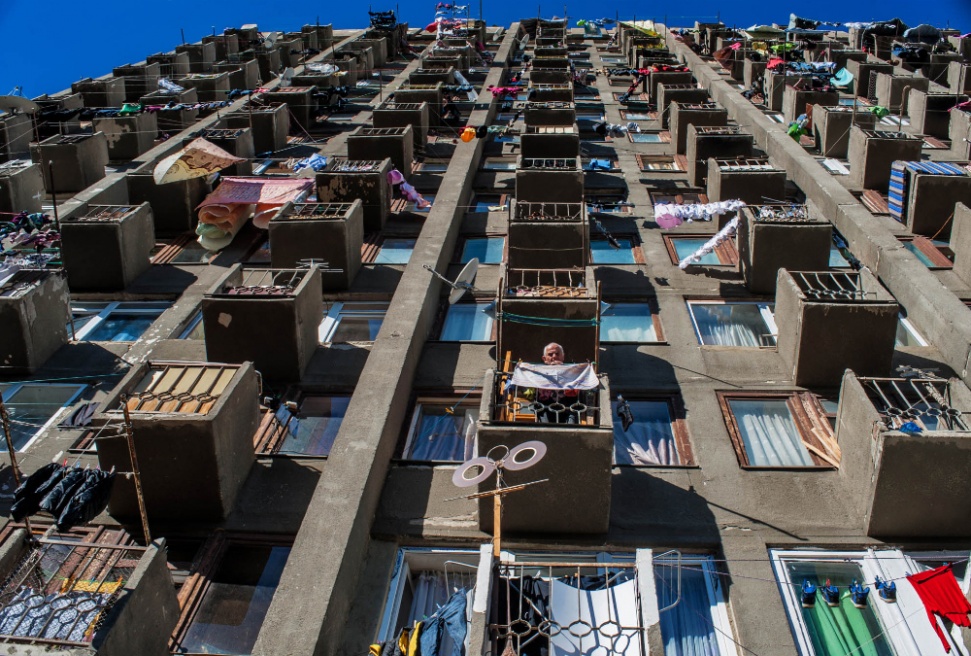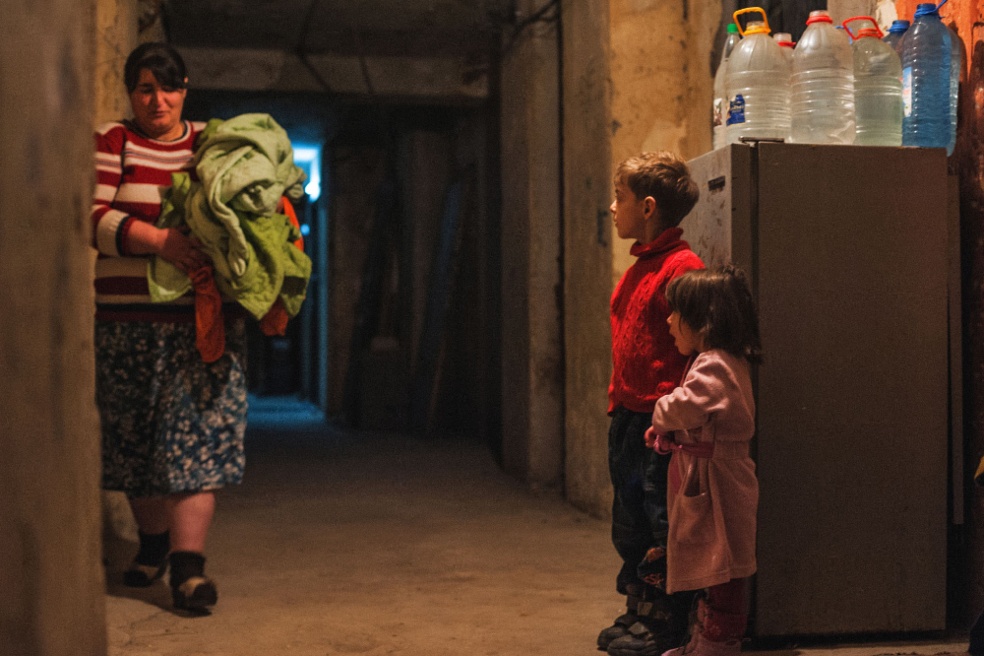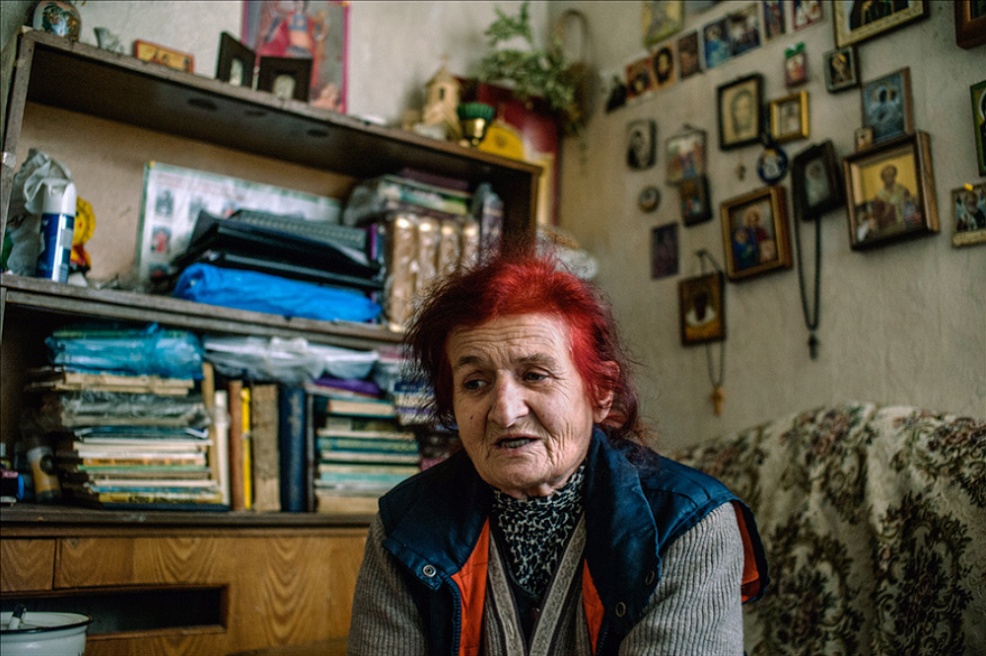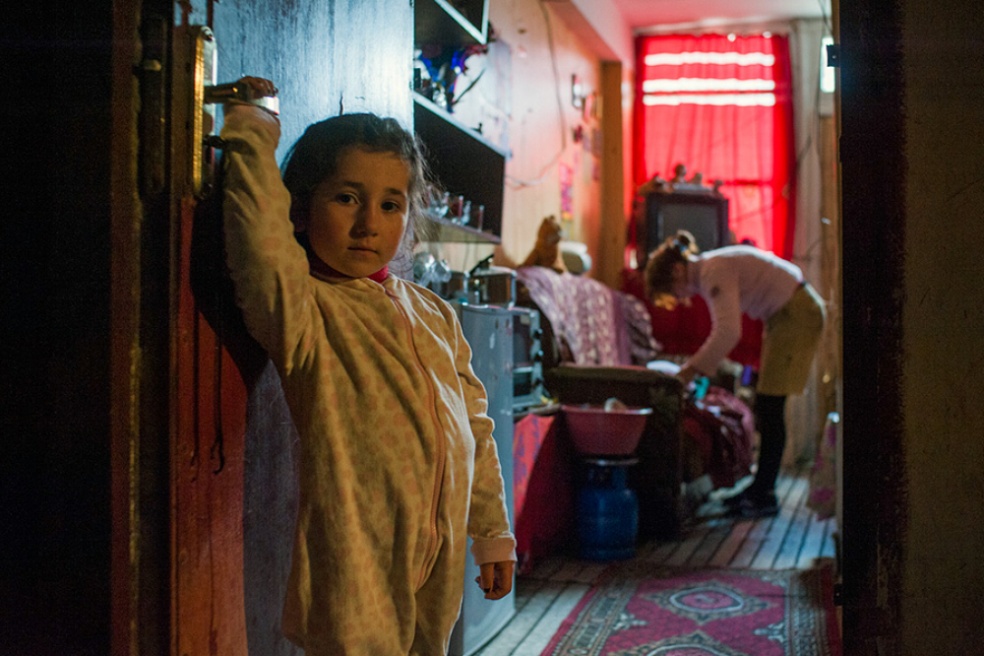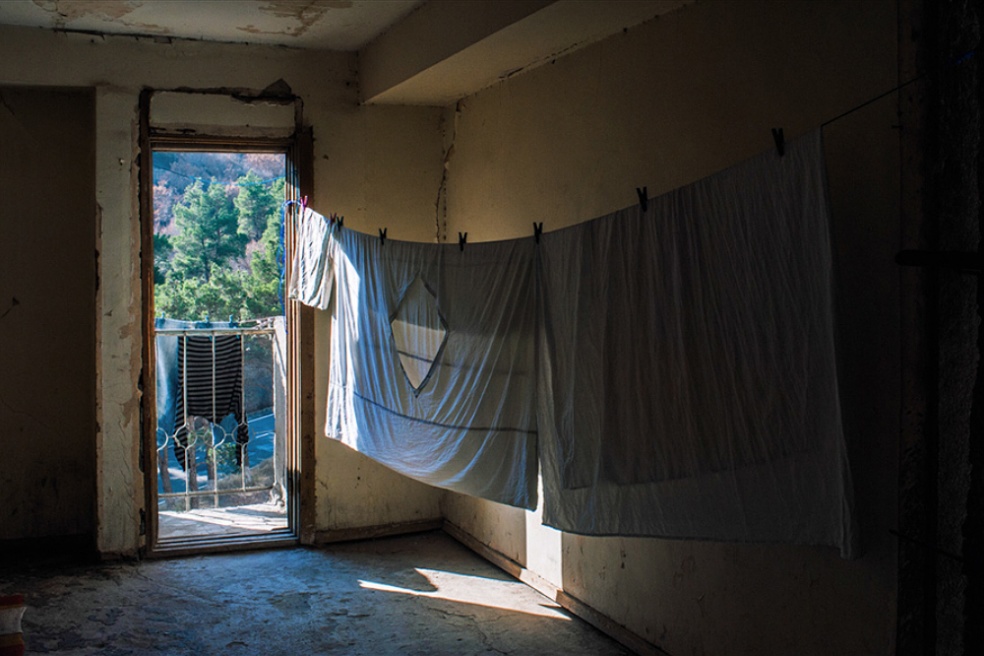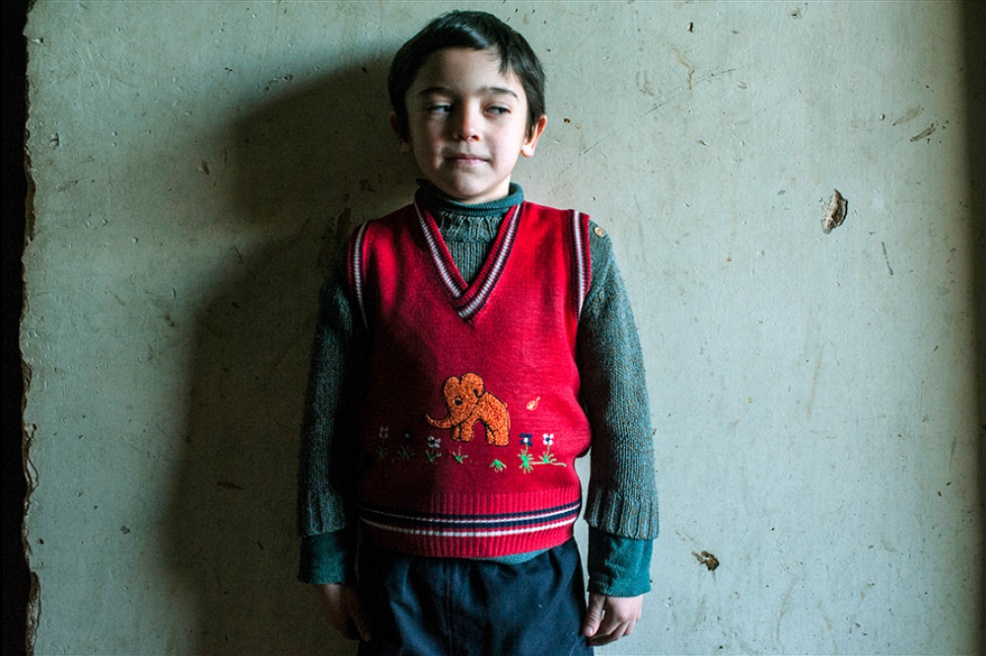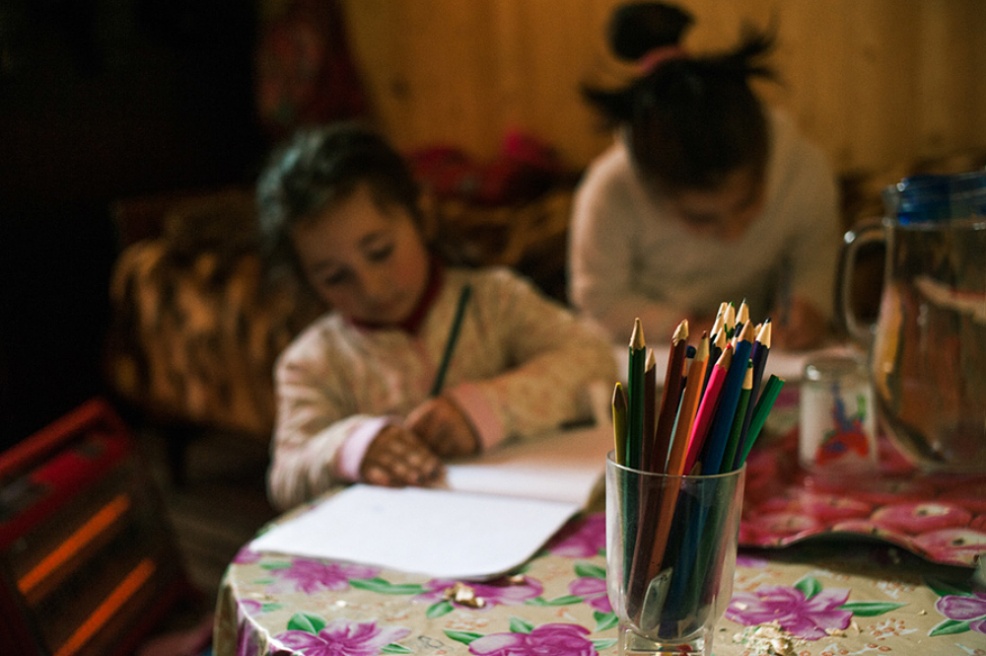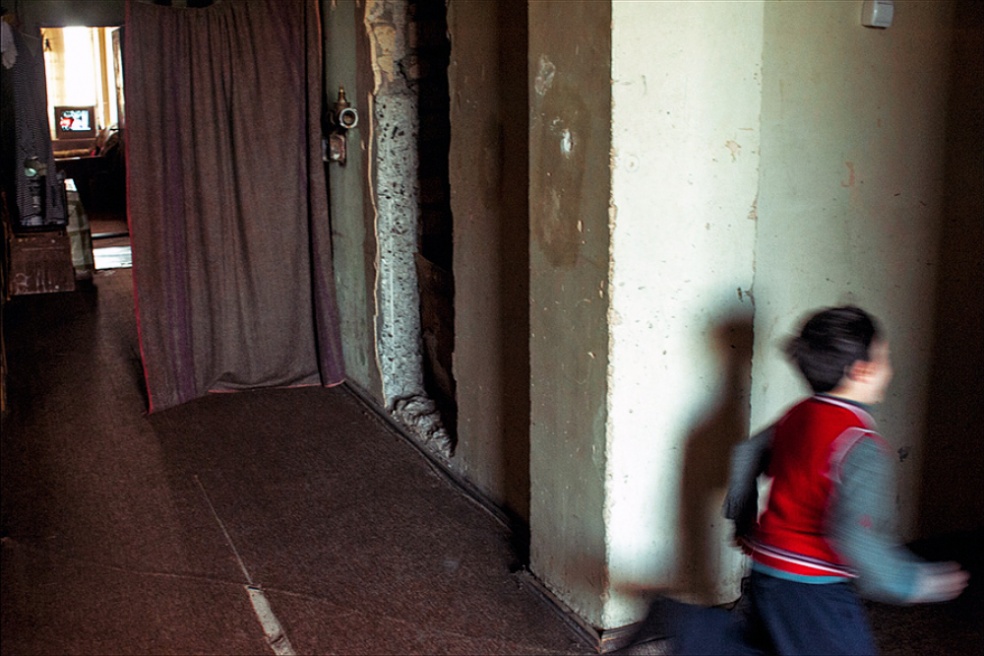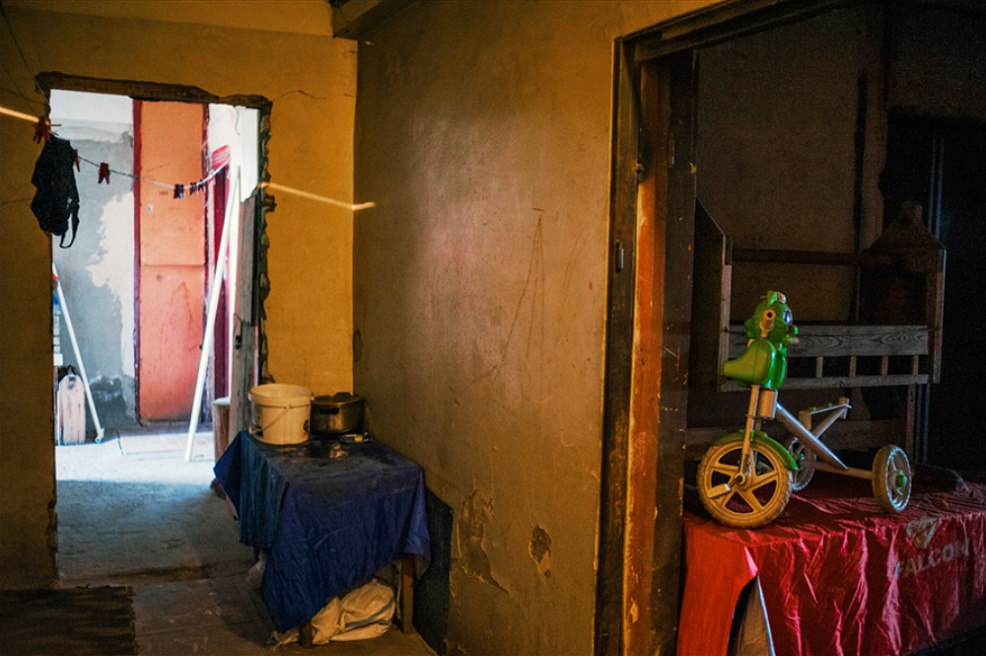War starts in 1993, Russian troops entered the territory of Georgia, later renamed to Abkhazia. Most of the country has become an active zone for combat operations. This war has lasted 413 days, its casualties were counted by thousands.
Almost half of the population of Abkhazia has fled the country to escape the disaster and death. Their homes were occupied, bombed, burned away, lots of people were on the street barefoot and hungry, they had not managed to save even a small part of his property, their lives were totally destroyed.
Many of them live in Russia now, but a great part has settled in Georgia.
Since then, after almost twenty years, nowadays 30,000 refugees from Abkhazia are living in Tbilisi, although there is speculation that this number grows of times more. It is gratifying that all of these people didn't die from bone-cold in the cellars of Tbilisi , they has found a roof over head instead of their lost houses. But there's still a big question what is the quality of their new life, hardly it's appropriate using the word "life".
Old collapsing buildings of abandoned hostels and student campuses, huge window holes curtained by rags, bare stone-cold walls with pouring plaster without a reason. Junk empty doorways, long shabby corridors, where the children worn race with the wind wrapped in someone else's clothes. Some standing in a row flowing buckets with water, which was disconnected for nonpayment and brought from the yard, some sagging couch and dirty mattresses, tiny rooms -cubicles, where a whole family lives for decades, so the question arises - how they could possibly fit there?
The answer is simple, all of it was temporary, but as it happens a lot, turned into a constant and only possible way of existence. Year by year passes through, someone dies, others get married and find new housing units, dozens flee here from war's repercussion. It is hard to believe that people live like that for twenty years! During this time, a new generation was born and grew, generation of displaced persons, those who has never seen another life, other conditions of existence.
All these people was given the status of refugees, but this will not give any advantages or benefits. They have to pay for electricity and water, buy food for every member of their families, get new clothes for children, even pay tax for a place in the cemetery. No wonder that some random gang of swindlers easily persuaded many of them to sign papers for " temporary transfer of ownership " by seducing a ridiculously money. So they lost even that crappy, miserable, but their for sure property. Someone settled in the corners of the corridors, others settled in elevator shafts and balconies. And now there are people who pay rent for a tiny room next to the one that was their. Schemers have been found and convicted, but the apartments did not returned to the deceived people because they were resold right after a deal.
One can not imagine how these people stay alive even now, their life preserved, but they have lost their hope for long. In twenty years, many have promised changes, but nothing has changed. To the refugees, who already have an apartment, the law does not rely anything else. Their faceless government does not care which conditions of apartments people live, how their kids grow up and the elderly live out. How do they manage to stay afloat and not to die of hunger? Where they get their power from? It is beyond belief of any "normal" person. Those people cause acute pity and admiration for courage and their fortitude, both.
They have been forgotten, they aren't wanted by anyone, they are strangers in their own country.

